Europic is the world premier virology conference that focuses on studies of picornaviruses. This family of important human and animal pathogens includes enteroviruses (e.g. poliovirus, rhinoviruses, EV-A71, EV-D68), hepatitis A virus and foot-and-mouth disease virus, as well as many other viruses whose number is growing by day with new discoveries.
The programme will include plenary talks from international experts along with shorter offered papers and poster sessions.
The topics covered will include picornavirus diversity and evolution, virus dissemination in the infected host, host reaction to picornavirus infection, virus–cell interactions, virus structure, the molecular mechanisms of the viral life cycle, molecular epidemiology and emergence of picornaviruses, ongoing surveillance and advances in clinical virology including diagnostics, vaccines and antiviral agents to control picornavirus infections.
As part of the preparations for returning to delivering in-person events, Microbiology Society Council members and members of the Virus Division have worked with Society staff to develop a framework of mitigations for the Society to apply to all of its events throughout 2022, in order to ensure that these are as COVID-secure as possible.
Implementation of this framework is a shared responsibility; shared between the Society, the venues we use for our events, and all potential attendees. Attendance at any of our events is a personal choice, but it will be incumbent on all of us to deliver these mitigations in order for us to keep all delegates and staff as safe as we can.
The framework covers the following five areas.
The following mitigations will be implemented for all those attending a Focused Meeting in 2022. The Society staff will continue to consult with the organising committee in the lead up to the event and these mitigations will be kept under review and may be amended to ensure they remain appropriate as circumstances change.
Mitigation area
Vaccines
All attendees are required to be fully vaccinated with an approved vaccine against COVID-19 to attend a Focused Meeting in 2022. For many individuals, this will mean a primary course and booster vaccine, and with the booster administered at least 14 days before the meeting. However, if you do not meet this requirement or if you have any concerns around your vaccination status, please get in touch with us to discuss it further by emailing [email protected]
You can find further information on vaccines on the World Health Organization (WHO) COVID-19 vaccine advice page, which includes a list of vaccines that have been approved for use against COVID-19.
Ventilation
Best efforts will be made to promote the circulation of fresh air into each Focused Meeting venue. This will include use of air conditioning, if available at the meeting venue, or opening of doors and windows during appropriate intervals in the event programme if possible.
Masks
FFP3 masks will be provided to all individuals attending a Focused Meeting in 2022 and everyone will be expected to wear them inside the meeting venue, except when eating or drinking and except for those that have medical exemptions.
Testing
Attendees will be provided with LFT devices and are expected to test themselves daily before entering the meeting venue.
Spacing
All attendees are reminded to adhere to social distancing where possible, particularly during communal activities such as lunch and poster sessions.
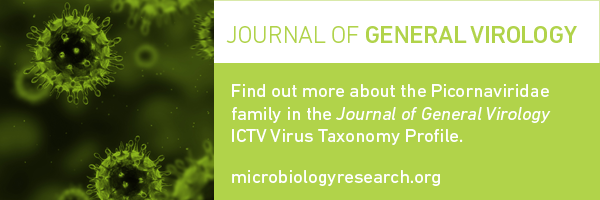
Image credit: iStock/Dr_Microbe
The programme of invited speaker for the meeting includes:
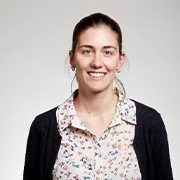
Marga Pons-Salort is an Advanced Research Fellow in the Department of Infectious Disease Epidemiology at Imperial College London. She uses mathematical and statistical modelling to study the dynamics and control of infectious diseases. She currently holds a Sir Henry Dale Fellowship, jointly funded by the Wellcome Trust and the Royal Society, to study the emergence and spatio-temporal patterns of spread of non-polio enteroviruses.
Twitter: @mponssalort
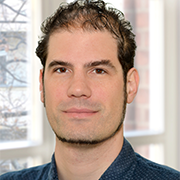
Jan Felix Drexler is an associate professor at Charité - Universitätsmedizin Berlin and head of the Virus Epidemiology laboratory. Following medical education in Germany and Brazil, he worked in Brazil, Germany and the Netherlands. His group focuses on the evolution and epidemiology of emerging viruses at the animal-human interface. Since 2006, he has published more than 200 peer-reviewed papers and acquired more than 15 million € in extramural funding.
Sir Dave Stuart is Professor of Structural Biology at Oxford’s Nuffield Department of Medicine and Wellcome Centre for Human Genetics. He is also founding director of the Division of Structural Biology and Oxford Particle Imaging Centre.

Dr Marjomäki obtained her PhD and postdoctoral training on membrane traffic studies, enteroviruses, confocal / TEM imaging and image analysis. The interest of Marjomäki lab is to study the regulation of virus entry and to elucidate the host factors that affect virus stability or promote viral uncoating in endosomes. The group has especially studied the infectious entry pathways of enterovirus B group viruses, including echoviruses and coxsackieviruses. The studies have included extensive microscopy, both confocal light and electron microscopy, as well as live microscopy. The lab has contributed to the development of in-house open-source software, BioImageXD, for processing, analysis and animation of 3D/4D image data (www.bioimagexd.net). In addition, Marjomäki has led projects developing novel probes, antivirals and vaccines for enteroviruses, and provided tools utilizing fluorescent tags and atomically precise gold clusters, as well as assays to address different steps in virus uncoating, stability and infection. The recent major focus in the laboratory is to study the mechanistic basis of potential antiviral molecules that have recently been found from several molecular and drug screens. The lab is also contributing to the COVID19 crisis by studying the stability of the coronaviruses and finding novel molecules that inhibit coronavirus infection. Some of them are shared between enteroviruses and coronaviruses.

Dr. Andino is a Professor at the Department of Microbiology and Immunology at the University of California San Francisco (UCSF). His group is interested in mechanisms of RNA virus replication, pathogenesis, and evolution. By examining mechanisms of virus replication, population intra-host adaptation, and its effects on pathogenesis, he has developed novel strategies for vaccine development and antiviral interventions.

Frank van Kuppeveld earned his doctoral degree in molecular virology at the University of Nijmegen, The Netherlands. There, he established his own research group, mainly focusing on the molecular aspects of picornavirus replication. His lab has made contributions in the field of picornavirus structure, uptake, genome release, and viral RNA replication, with special attention to the role of picornavirus nonstructural proteins and (hijacked) host factors in the formation of viral replication organelles and the process of viral RNA synthesis that takes place in these specialized replication sites. The obtained knowledge is used to identify and develop broad-range inhibitors of picornavirus replication. Furthermore, his lab studies how intracellular RNA sensors discriminate viral RNA from host cell RNA and how they signal to trigger interferon and stress responses, as well as how viruses manipulate signaling to suppress these antiviral responses. In 2012, he moved with his research group to Utrecht University to become Professor of Molecular Virology and Head of the Virology Division (which also harvests research groups focusing on Influenza and Coronaviruses). His research is supported by grants from the Netherlands Organization of Scientific Research (including prestigious personal VIDI and VICI grants) and the European Union. He was coordinator of European Training Networks “EUVIRNA” (2011-2015) and “ANTIVIRALS” (2015-2019), both of which focused on antiviral drug development.
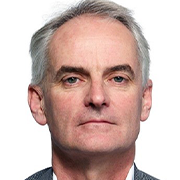
Bryan is an internationally recognised expert in host-pathogen interactions of major viral diseases of farmed livestock. His scientific discoveries have resulted in improved measures to prevent infectious diseases. The underpinning drivers of his career and research are securing food supply and improving human health through improved nutrition and reduced zoonotic disease. There continues to be a focus on three key elements of disease control, understanding the mechanisms of persistent infection, virus transmission and vaccine development. Studies in natural livestock hosts are essential to inform disease control strategies, yet provide significant challenges in designing experiments to achieve robust results. Invariably, new reagents and innovative methods need to be developed. The impact of these studies extends beyond disease control and food security and informs the broader field of comparative biology.
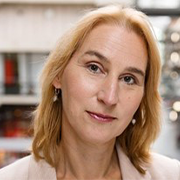
Katja Wolthers is a senior clinical virologist (MD PhD), head of the Organoids for Virology Laboratory (OrganoVIR Labs) at the Amsterdam UMC, chair of the Clinical Virology section of the Dept MMI, Principal Investigator, and founder of the Organoid Center AUMC. She is coordinating the prestigious ITN H2020 program OrganoVIR: ‘Organoid for Virus research’ and the Next Generation Organ-on-Chip consortium GUTVIBRATIONS, and coordinated the Marie Curie FP7 consortium AIROPico, an Academy-Industry partnership on Research& Development: Opportunities for Picornaviruses, collaborating on human picornavirus biology, diagnostics, and therapy development. She is an expert in human picornavirus research on clinical epidemiology, treatment, and pathogenesis studies, with a special focus on the human parechoviruses. Her aim is to develop ‘human-body-in-the-lab’ infection models for virus pathogenesis, and for picornaviruses the airway, gut and brain are important sites of entry and infection. Another major interest of Katja is animal-free research. She is an active member of the Dutch network ‘Transition towards animal-free innovations’ and teaches Animal Free Innovations in several university courses.
Twitter: @k3wolthers
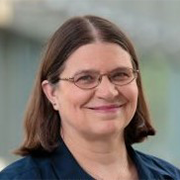
Cara C. Burns, PhD, is the Acting Branch Chief of the Polio and Picornavirus Laboratory Branch in the Division of Viral Diseases at the Centers for Disease Control and Prevention. She obtained her B.S. in Biochemistry from Texas A&M University. She obtained her Ph.D. from the University of Utah studying poliovirus, followed by postdoctoral studies of retroviruses at the University of Washington in Seattle, Washington. Her work at CDC since 1998 has focused on poliovirus molecular epidemiology and surveillance, support for poliovirus sequencing by the Global Polio Laboratory Network and using poliovirus as a model for rational vaccine design.
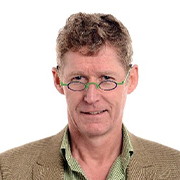
Sebastian L Johnston is Professor of Respiratory Medicine & Allergy at the National Heart and Lung Institute, Imperial College London.
He is Director of the MRC & Asthma UK Centre in Allergic Mechanisms of Asthma, is the Asthma UK Clinical Professor and is a UK National Institute of Health Research Senior Investigator.
He Edited Thorax from 2002-2010 and serves as Associate Editor or on the Editorial Boards of several other Respiratory and Allergy Journals. He has published >400 scholarly manuscripts and 18 patents.
Notable achievements include establishing the viral aetiology of the majority of asthma and COPD exacerbations, discovering novel mechanisms of susceptibility to virus infection in asthma and COPD, and developing novel treatment approaches for acute exacerbations of these diseases.
Abstract books for the conference are available as downloadable .pdf documents and have been separated for convenience into offered oral and poster abstract books.
All posters will be displayed throughout the meeting, with presentations divided between two poster sessions.
Odd numbered posters will be presented on Monday 6 June 20:00 – 22:00
Even numbered posters will be presented on Tuesday 7 June 20:00 – 22:00
Please prepare your presentation in widescreen (16:9) format for PowerPoint and bring the file to the meeting on a USB memory stick or ensure the file is accessible via cloud storage.
A Windows PC will be available. If you wish to present from a Mac, please bring your own device and cable to connect to the projector.
All offered paper presentations are 15 minutes in length. Please check the online programme to find the time that your presentation will be taking place.
For those delivering offered oral presentations, please prepare a 12 minute presentation and allow 3 minutes for questions.
We have produced a guide on how to give an oral presentation, which can be downloaded below:
Those who are presenting a poster must ensure the work is presented as below. Incorrectly formatted posters might not be displayed.
We have produced a guide on how to give a poster presentation, which can be downloaded below:
Registration is open.
The deadline to register is 20 May 2022.
As part of the preparations for returning to delivering in-person events, Microbiology Society Council members and members of the Virus Division have worked with Society staff to develop a framework of mitigations for the Society to apply to all of its events throughout 2022, in order to ensure that these are as COVID-secure as possible.
Implementation of this framework is a shared responsibility; shared between the Society, the venues we use for our events, and all potential attendees. Attendance at any of our events is a personal choice, but it will be incumbent on all of us to deliver these mitigations in order for us to keep all delegates and staff as safe as we can.
The framework covers the following five areas.
The following mitigations will be implemented for all those attending a Focused Meeting in 2022. The Society staff will continue to consult with the organising committee in the lead up to the event and these mitigations will be kept under review and may be amended to ensure they remain appropriate as circumstances change.
Mitigation area
Vaccines
All attendees are required to be fully vaccinated with an approved vaccine against COVID-19 to attend a Focused Meeting in 2022. For many individuals, this will mean a primary course and booster vaccine, and with the booster administered at least 14 days before the meeting. However, if you do not meet this requirement or if you have any concerns around your vaccination status, please get in touch with us to discuss it further by emailing [email protected]
You can find further information on vaccines on the World Health Organization (WHO) COVID-19 vaccine advice page, which includes a list of vaccines that have been approved for use against COVID-19.
Ventilation
Best efforts will be made to promote the circulation of fresh air into each Focused Meeting venue. This will include use of air conditioning, if available at the meeting venue, or opening of doors and windows during appropriate intervals in the event programme if possible.
Masks
FFP3 masks will be provided to all individuals attending a Focused Meeting in 2022 and everyone will be expected to wear them inside the meeting venue, except when eating or drinking and except for those that have medical exemptions.
Testing
Attendees will be provided with LFT devices and are expected to test themselves daily before entering the meeting venue.
Spacing
All attendees are reminded to adhere to social distancing where possible, particularly during communal activities such as lunch and poster sessions.
The student and early career researcher rate is available to those that that are currently studying for an undergraduate or postgraduate degree or are currently working in a position within five years or achieving their highest degree.
The early bird rates have now expired.
|
Residential - Single Occupancy |
Full price |
|
Full rate |
£920 |
|
Students and early career researcher |
£820 |
|
Residential – Shared Occupancy* Limited to 40 places |
Full price |
|
Full rate |
£770 |
|
Students and early career researcher |
£670 |
* Rooms offered on a shared occupancy basis will include two separate beds. For those wishing to register for shared occupancy of a hotel room, registration for both delegates must be completed in the same booking.
If you have a question relating to accommodation or wish to discuss any specific requirements, please email [email protected]
Upon registration, you should receive an automated confirmation email. Please contact [email protected] if after 24 hours this has not been received.
All registration fees must be paid in full before the start of the event. Any outstanding registration fees must be paid before any joining instructions containing information on how to access the event are sent out.
We are aware of ongoing uncertainty around event attendance as the pandemic continues. In order to give delegates the most confidence and flexibility, we will refund all registration fees in full if you cancel your booking, for whatever reason, at any time in the lead up to the event. If you wish to cancel your booking and request a refund before the event, please email [email protected]
Europic Bursaries will be made available for students and early career researchers that are presenting at the meeting. Those wishing to apply for a bursary should express their interest when submitting an abstract.
Further details about the amount of funding available and the application process will be made available nearer the time of the meeting.
Applications for the Society Conference Grant and Travel Grant to support members attending Europic 2022 are now closed. Please contact [email protected] for any questions.
Harrogate is a Victorian spa town, surrounded by beautiful countryside. It is home to Betty’s tearooms, Turkish baths dating back to the 1890s and Royal Horticultural Society Gardens. There will be an opportunity to explore some of the local area during the meeting – details to follow.
For those looking to extend their stay in Harrogate, you can find out more about local amenities, tours, cultural attractions and more at the Visit Harrogate website.
Europic 2022 will be taking place at the Harrogate Majestic Hotel and Spa.
DoubleTree by Hilton Harrogate Majestic Hotel & Spa
Ripon Road
Harrogate
HG1 2HU
UK
All residential registration rates include four nights’ accommodation at the Harrogate Majestic Hotel and Spa, from Sunday 5 – Wednesday 8 June. Check in is available from 4pm and the check out time is 12 noon. You will receive further information about checking in and accessing the accommodation closer to the time of the meeting.
Harrogate is well connected by road and rail transport and is accessible by air travel from within the UK and overseas destinations.
The Harrogate Majestic Hotel and Spa is conveniently located within a five minute walk of the city centre.
Air: The closest airport to Harrogate is Leeds Bradford Airport (LBA). Daily flights operate from London Heathrow to LBA and there are also regular international flights from international locations, including Paris, Amsterdam and Dublin. To get from LBA to Harrogate, there is an Airport Direct 747 bus, which run ever hour. Alternatively, taxis are available from airport.
Some international flights also operate to Manchester Airport. Rail services are available from Manchester to Harrogate, with a connections via Leeds Station.
Rail: Harrogate is served by regular train services from both the North and South of the UK. For those flying into or travelling from London, Direct LNER train services operate regularly between London King’s Cross and Harrogate Station.
Road: for those traveling by car, please use the postcode HG1 2HU to be directed to the Harrogate Majestic Hotel and Spa. Onsite car parking is available at the hotel and is included in the event registration free. Parking spaces are limited and are offered on a first come, first served basis.
Sponsorship opportunities are available for this meeting.
Please download our exhibitor and sponsor pack to view our options, which suit varying budgets and help create the opportunities you need to connect with new and existing customers. If you have any questions about the packages please email [email protected].
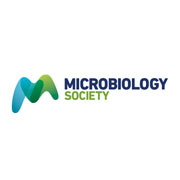
|
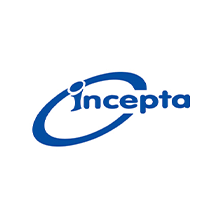
|
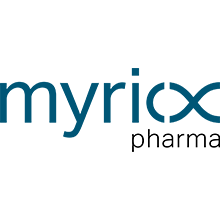
|

|

|